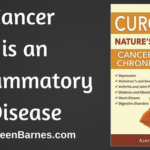The current national uproar over the measles outbreak that has affected—gasp—100 kids nationwide is an interesting commentary on our national psyche.
I‘ll tell you here from the get-go before too many people get their shorts in a twist assuming they know what I’m about to say:
I’m not taking a side in the vaccinate/don’t vaccinate debate. It’s up to parents to make their own choices.
However, parents who choose not to vaccinate their children have become the butt of a national fear campaign that rivals the Ebola scare. It’s making me think that someone wants us to have something be terrified about at every moment of our lives. If it’s not Ebola and Islamic terrorists, let’s worry about the measles.
Let’s put this all into perspective: The World Health Organization says that death from measles is rare outside of the undeveloped world, where complications like blindness, pneumonia and, in extremely rare cases, encephalitis and even death, occur almost always in children who are malnourished.
I grew up in the era before the measles vaccine (it came out in 1962) and, amazingly, most of us survived as far as I can tell. There may have been a few kids with impaired immune systems who suffered side effects or worse, but those numbers weren’t large or the cause for national panic.
I remember. I was 10 or 11 when I developed a rash and a slight fever, what was then called the “three-day” measles. It was a minor annoyance and a mandatory week off school.
Most of my friends got the measles, too. In fact, moms were urged to be sure their daughters got the measles as children so they would develop natural immunity. This was especially important because later in life, the measles contracted during pregnancy could cause miscarriages and birth defects. There were even “measles parties” in those days to deliberately expose kids—primarily little girls—to the disease. In those days, nobody was vaccinated. The vaccine didn’t exist.
The three-day measles was supposed to have given me a natural immunity to the disease, but sadly, it didn’t. I contracted it again at the age of 35, shortly after I moved to the Philippines. I suspect the strain was slightly different there and my body wasn’t ready to handle this new invader. The second bout was more serious and it took me about three weeks to recover. But recover I did, without lasting side effects.
My point here is not whether or not parents should vaccinate their children or whether all children should have mandatory vaccinations, but simply to ask the question: What’s all the ruckus about?
Have we as a nation simply become hyper-vigilant parents determined to panic over things that aren’t even worth worrying about?








I must take exception to a simplistic attitude toward the question of vaccination. By the description of measles in your younger days you give the wrongful impression that measles is just a few days with an ugly rash.
Please don’t contribute to the noise by trivializing the decision to vaccinate or not.
Thank you – a good perspective.
The three day measles (rubella) are not that bad, I had them myself. What is bad is a woman who happens to catch them when she is pregnant. I have a cousin who is completely deaf because my Aunt Ruby Neil caught them from her older son when she was pregnant with my cousin Danny. If they could of vaccinated her older son, she might not of been exposed which led to Danny being deaf.